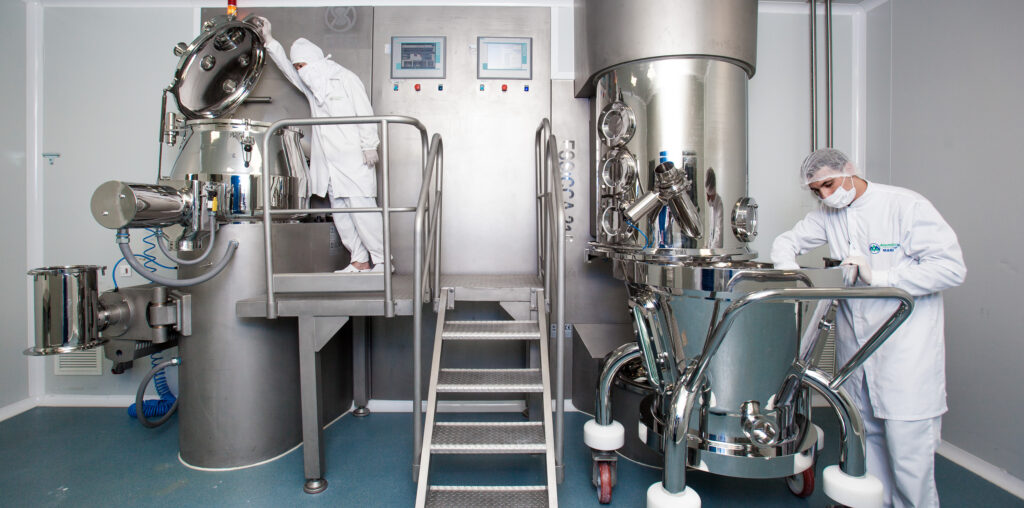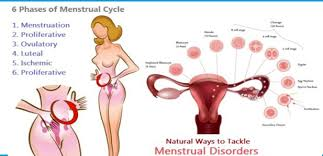In the pharmaceutical industry, efficient operations are vital for meeting strict quality standards, adhering to regulatory requirements, and maximizing productivity. The right equipment can make a significant difference, enhancing workflows, reducing human error, and ensuring consistent output. This article highlights some of the most essential pharma equipment to streamline operations and boost efficiency across various pharmaceutical processes, from production to packaging.
1. Granulators: Enhancing Consistency in Tablet Production
Granulation is a key step in tablet manufacturing, converting powder into granules to achieve uniformity in each tablet. Granulators are vital pharma equipment that ensure the desired density and size of granules, which contribute to consistent tablet weight and controlled drug release rates. With advanced granulators, pharmaceutical manufacturers can streamline this stage, producing tablets that meet strict quality standards.
High-shear granulators, for instance, are known for their speed and efficiency. These machines produce granules with optimal density, improving flowability and reducing segregation during tablet pressing. Fluid bed granulators are another popular choice, providing the added benefit of drying granules in the same chamber, saving time and reducing contamination risk. Both types of granulators enhance production efficiency and are customizable to meet specific needs.
Key Benefits:
- Achieves uniform granule size and density
- Reduces production time with integrated drying capabilities
- Minimizes product loss and waste
2. Mixers and Blenders: Ensuring Uniformity and Precision
Mixing and blending are crucial processes in pharmaceutical manufacturing, ensuring that all ingredients are evenly combined for consistent dosing. High-quality mixers and blenders are indispensable pharma equipment for producing homogeneous mixtures, whether in powder, semi-solid, or liquid form. Designed to handle various materials, these machines come in different configurations tailored to specific applications.
Ribbon blenders, for example, are efficient for mixing powders and granules, using a ribbon-shaped agitator to move materials throughout the mixing vessel. Planetary mixers are ideal for handling thicker, more viscous materials, like creams or gels. The right mixer or blender not only reduces mixing times but also improves product quality, allowing pharmaceutical companies to maintain strict quality standards.
Key Benefits:
- Ensures a uniform mix for consistent dosing
- Reduces mixing times, enhancing production efficiency
- Available in multiple configurations for various materials
3. Coating Machines: Enhancing Product Stability and Compliance
Tablet coating is an essential step in manufacturing, improving tablet appearance, palatability, and protecting active ingredients from environmental factors. Coating machines are vital pharma equipment that streamline this process, applying a uniform layer of coating material to each tablet to control drug release and improve shelf life.
Automated coating machines ensure a consistent application and can handle high production volumes, making them ideal for large-scale pharmaceutical operations. They reduce errors and allow for precise control over the coating’s thickness and quality. With programmable coating parameters, these machines let manufacturers optimize the coating process based on specific needs.
Key Benefits:
- Ensures consistent coating for enhanced product stability
- Allows for customizable coating parameters
- Reduces manual handling, minimizing contamination risk
4. Capsule Filling Machines: Speed and Precision in Dosage
For pharmaceutical companies producing capsules, capsule filling machines are essential pharma equipment for achieving dosage accuracy and production efficiency. These machines automate the filling process, ensuring each capsule contains the precise amount of active ingredients. Capsule filling machines come in various configurations, including manual, semi-automatic, and fully automatic models to cater to different production scales.
Fully automatic capsule filling machines are highly efficient, processing thousands of capsules per hour. They reduce the need for manual intervention, improving dosage accuracy and minimizing the risk of contamination. Advanced models also feature weight-checking mechanisms and automated quality control, allowing manufacturers to monitor and uphold high standards throughout the production process.
Key Benefits:
- Ensures high accuracy in dosage for consistent efficacy
- Increases production speed, ideal for high-volume operations
- Minimizes risk of human error and contamination
5. Liquid Filling Machines: Precision and Hygiene in Liquid Products
Liquid filling machines are essential pharma equipment for companies producing liquid medications, syrups, or suspensions. These machines ensure precise filling of containers, which is critical for maintaining accurate doses and minimizing waste. Advanced liquid filling machines often come equipped with automated cleaning and sterilization features, making them ideal for meeting high hygiene standards in pharmaceutical production.
Peristaltic and piston filling machines are popular in the industry, each with unique benefits. Peristaltic machines are known for their high accuracy and reduced contamination risk, while piston fillers are suitable for handling high-viscosity liquids. Selecting the right liquid filling machine can improve the efficiency of liquid product lines, ensuring production meets quality and safety standards.
Key Benefits:
- Provides precise dosing, minimizing product waste
- Maintains hygiene standards with automated cleaning features
- Adaptable to different container sizes and liquid viscosities
6. Inspection and Detection Systems: Quality Assurance and Safety
Quality assurance is a priority in pharmaceutical manufacturing, and inspection and detection systems are critical pharma equipment for identifying and removing defective products. These systems use advanced technologies like X-ray, vision inspection, and metal detection to spot foreign particles, irregularities, or physical defects in tablets, capsules, and other products. By ensuring only defect-free products reach the market, inspection systems help manufacturers comply with regulatory standards and build consumer trust.
Incorporating automated inspection systems significantly reduces the need for manual checks and speeds up production. With features like real-time data collection and automatic rejection of defective products, these systems streamline quality control processes, minimizing the risk of recalls or regulatory issues.
Key Benefits:
- Detects contaminants and defects, enhancing product safety
- Reduces need for manual inspection, increasing efficiency
- Supports regulatory compliance with industry standards
7. Labeling and Packaging Machines: Streamlining Final Processes
Labeling and packaging are the final steps in pharmaceutical manufacturing, and efficient pharma equipment can streamline these processes. Labeling machines apply information labels accurately, ensuring each product includes important information like dosage instructions, expiration dates, and batch numbers. Packaging machines automate the placement of products into blister packs, bottles, or cartons, reducing the need for manual labor.
With automated labeling and packaging machines, manufacturers can handle large volumes quickly, reducing bottlenecks in the production line. These machines can be customized to accommodate different packaging formats and product sizes, helping companies meet diverse market demands efficiently.
Key Benefits:
- Ensures accurate labeling for regulatory compliance
- Increases packaging speed, supporting large-scale production
- Customizable for different product types and packaging formats
Conclusion
In the fast-paced and highly regulated pharmaceutical industry, efficiency and accuracy are essential for success. By investing in advanced pharma equipment, companies can streamline their operations, reduce human error, and ensure consistent product quality. From granulators and mixers to filling and inspection machines, each piece of equipment plays a crucial role in maintaining a smooth, efficient production line. As the demand for high-quality pharmaceutical products grows, having the right equipment is more important than ever for manufacturers aiming to meet market needs and regulatory standards.
These tools not only enhance productivity but also contribute to the reliability and safety of the products that reach consumers, solidifying the role of efficient equipment as a cornerstone of modern pharmaceutical manufacturing.
Also Read: Top 5 Factors to Consider When Purchasing Surgical Equipment



